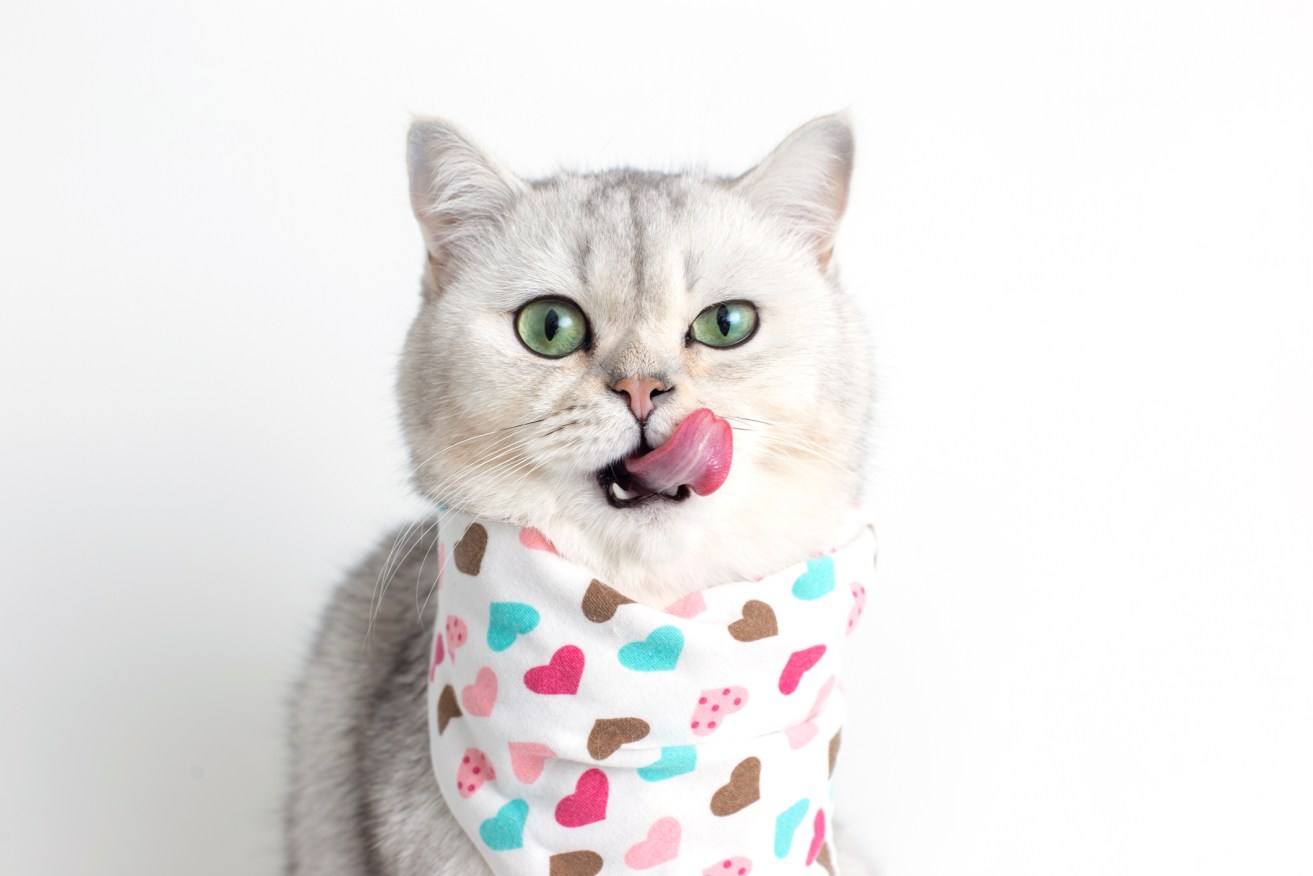
What’s new, pussycat? The benefits of a vegan cat food, that’s what
A new Griffith-led study has explored whether a vegan diet for cats provided more benefits for our feline friends’ health than a carnivorous diet.

A adorable white cat, licks its muzzle with its tongue, sits on a white background with a bib in hearts, looks at camera.
The results revealed decreases in veterinary visits, medication use, health disorders and severe illnesses after the feline study participants were fed a vegan diet for at least one year.
Professor Andrew Knight, an adjunct in Griffith’s School of Environment and Science, said increasing concerns about environmental sustainability, farmed animal welfare and the development of alternative pet foods provided a catalyst for the research.
“Alternatives include raw meat diets, in-vitro meat products, and diets based on novel protein sources such as terrestrial plants, insects, yeast, fungi and potentially seaweed,” Professor Knight said.
Professor Knight and the team surveyed 1,418 cat guardians, asking about one cat living with them, for at least one year.
Among the 1,380 respondents involved in cat diet decision-making, health and nutrition was the factor considered most important when choosing diets.
Of these, 1,369 respondents provided information relating to a single cat fed a meat-based (1,242 – 91%) or vegan (127 – 9%) diet for at least one year.
“We examined seven general indicators of illness,” Professor Knight said.
After controlling for age, sex, neutering status and primary location, the following risk reductions with a vegan diet occurred for average cats, for all seven general illness indicators:
- increased veterinary visits (which may indicate illness) – 7% reduction;
- medication use – 15% reduction;
- progression onto therapeutic diet – 55% reduction;
- reported veterinary assessment of being unwell – 4% reduction;
- reported veterinary assessment of more severe illness – 8% reduction;
- guardian opinion of more severe illness – 23% reduction;
- number of health disorders per unwell cat – 16% reduction.
The team also examined the prevalence of 22 specific health disorders, using reported veterinary assessments. Forty two percent of cats fed meat, and 37% of those fed vegan diets suffered from at least one disorder.
Of these 22 disorders, 15 were most common in cats fed meat, and seven most common in cats fed vegan diets.
“Considering these results overall, cats fed vegan diets tended to be healthier than cats fed meat-based diets,” Professor Knight said.
“This trend was clear and consistent and these results largely concur with previous, similar studies. A sizeable body of studies have been published within the last two years, exploring health outcomes of vegan diets in cats and dogs, and the environmental impacts of meat-based pet food. This evidence is remarkably consistent – nutritionally sound vegan diets produce health outcomes as good or better, and are associated with major environmental benefits.”
The research ‘Vegan versus meat-based cat food: guardian-reported health outcomes in 1,369 cats, after controlling for feline demographic factors’ has been published in PLOS ONE.















